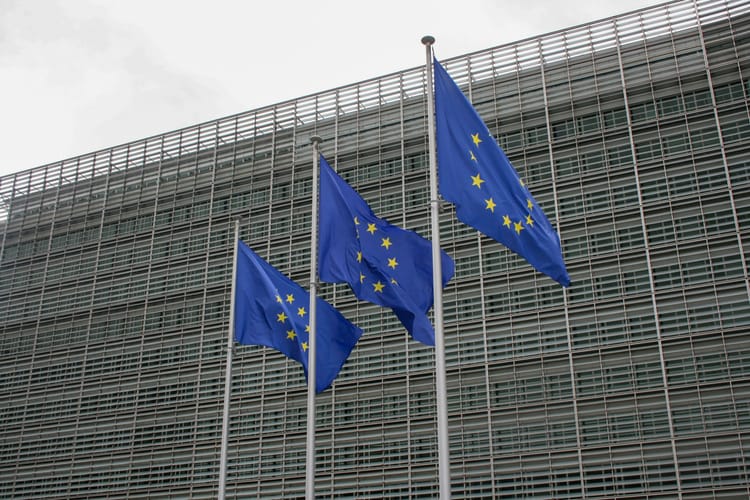Big Tech bets on carbon credits as AI climate impact grows

Google, Meta, Microsoft and Salesforce have launched a coalition to develop 20 million tonnes of carbon credits from nature-based projects by 2030, at a time when AI-related emissions are beginning to weigh heavily on tech's carbon footprint.
The Symbiosis Coalition aims to facilitate the “largest ever advance market commitment” for nature-based carbon removals, sending a strong demand signal to accelerate the development of nature restoration projects that can support decarbonisation goals.
The recent controversy around the Science-Based Targets Initiative’s consideration of carbon credit use for Scope 3 decarbonisation suggests that sustainability voices are increasingly divided about the role of carbon offsetting in achieving a net zero economy. But for tech corporations that are increasingly relying on artificial intelligence (AI) for profitability, carbon removals may be indispensable.
Microsoft, for example, revealed earlier this month that its emissions jumped by nearly 30% in 2023 due to the construction of new data centres to meet growing AI expectations, and the company has already signed numerous carbon removal deals.
Melanie Nakagawa, Chief Sustainability Officer at Microsoft, said the company’s work with the Symbiosis Coalition is “a key step towards realising [its] carbon negative goal by 2030 through a diversified portfolio of carbon removal”.
“This collaboration will help build the overall market for these solutions, leading to more restoration purchases that benefit all of us. Continued investment in carbon removal is important not just to meet our goals but for the world to meet its goals,” she added.
Read more: Generative AI - sustainability game changer or ticking time bomb?
Raising the bar for carbon credit quality
Nature-based projects to remove CO2 from the atmosphere have repeatedly been criticised for exaggerating their positive impacts, but Google, Microsoft, Meta and Salesforce hope that the Symbiosis Coalition will help support more integrity in the market.
The coalition will serve as an “independent, non-profit joint procurement vehicle” for nature-based carbon removals, and will be guided by five quality pillars: conservative accounting, durability, social and community benefits, ecological integrity, and transparency. These are set to be translated into clear criteria and communicated to project developers as part of a joint Request for Proposal.
It will initially focus on afforestation, reforestation, and revegetation projects (ARR) such as forest and mangrove restoration, as well as agroforestry. Projects should “integrate the most recent science and data on the climate impact of restoration while equitably involving and compensating Indigenous Peoples and local communities”.
The coalition is committed to “paying the real cost necessary to enable these projects to happen”. From 2021 to 2022, the average price of forestry and land use credits increased by 75%, but in 2023, nature-based credits still sold at an average of US$10.61 per tonne on the voluntary carbon market.
Read also: BCG Chief Sustainability Officer David Webb in the need to pay for quality in carbon removals
Good news for voluntary carbon market players
Symbiosis received advice from a number of organisations helping to develop the voluntary carbon market and trying to increase its integrity, including Pachama, Conservation International and the Nature Conservancy.
“The launch of the Symbiosis Coalition today is a decisive step in the right direction and the announcement by Google, Meta, Microsoft, and Salesforce to stand for nature-based carbon credits comes at a time where we need more companies to step up boldly. In our journey to eliminate 150 billion tonnes of greenhouse gas pollution between now and 2030, we must use every single tool at our disposal,” said Jennifer Morris, CEO of the Nature Conservancy.
The coalition was also inspired by Frontier Climate, an initiative through which the likes of Stripe, Alphabet, Shopify, Meta and McKinsey have committed to buy an initial US$1 billion of permanent carbon removals by 2030, as well as the LEAF Coalition, which allows sovereign and corporate buyers abiding by a set of integrity criteria to make forward purchase commitments of jurisdictional forest carbon credits.
Alexia Kelly, Managing Director, Carbon Policy and Markets Initiative at High Tide Foundation and Advisor to the Integrity Council for the Voluntary Carbon Market (ICVCM), welcomes the news on Linkedin: “The world needs more climate action and less climate bickering so absolutely delighted to see this incredible effort take flight. Thanks to these pioneering companies for continuing to set the bar on ambitious voluntary corporate climate action and showing us all the way!”







Member discussion